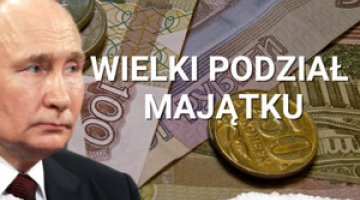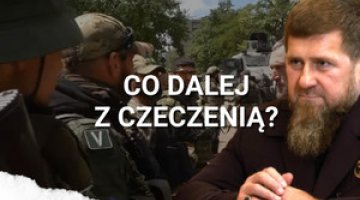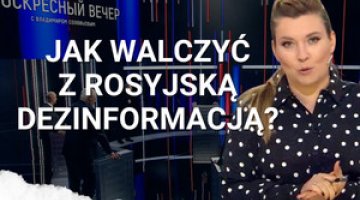Putin’s support for Lukashenka
On the afternoon of 27th August the Russian state-owned television station Rossiya 1 broadcast an interview it had prepared with President Vladimir Putin (www.kremlin.ru/events/president/news/63951). The situation in Belarus and Russian-Belarusian relations were among the issues raised in the interview. In this context, it is worth drawing attention to the following statements which the Russian president made:
1. The emphasised importance of Belarus for Russia
Putin underlined that Belarus was one of the countries that were the closest to Russia, perhaps even the closest one. This is determined by ethnic, cultural, linguistic, spiritual and economic ties. Due to this, Russia is not at all indifferent to the situation in Belarus. Thus Putin hinted that Belarus was a key element of the Russian sphere of influence in the post-Soviet area.
2. The principles of political regulation
On the one hand, the president expressed a belief that the voices and demands of the protesting Belarusians should be heard. On the other hand, he pointed out that Alyaksandr Lukashenka had offered amendments to the constitution, followed by new presidential and parliamentary elections. Putin reiterated the statements of the Belarusian government regarding the unconstitutional character of ‘other bodies’ (an allusion to the Coordination Council which is managing the protests). In this way he clearly suggested that the political regulation in Belarus should be conducted in formal compliance with Belarusian law – and thus, de facto, based on conditions dictated by Lukashenka.
3. Russian support in the area of law enforcement
Putin confirmed that Russia is ready to deliver on its commitments regarding assistance (also in the area of security) as part of the Union State of Belarus and Russia and the Collective Security Treaty Organization. He stated that a contingent of law-enforcing forces (most likely this refers to the Special Purpose Police Unit – OMON – or another unit of the National Guard) had been formed in Russia at the request of Lukashenka and that it would be dispatched to Belarus should the conflict escalate and lead, for example, to property damage or attempts by protesters to attack public buildings. At the same time, Putin emphasised that there had not yet been such a need and expressed his hope that the political disputes would be settled peacefully. Nevertheless, the Russian president criticised alleged external attempts to provoke an escalation of the conflict. Thus he clearly declared the readiness to provide limited law-enforcement support to defend the Lukashenka regime and warned Western countries not to attempt to become involved in regulating the conflict in Belarus.
The same day Lukashenka announced that he had agreed, in a telephone conversation with Putin, a refinancing of a Russian loan of US$ 1 billion, granted to Belarus, in order to stabilise the country’s financial situation (the previous day the Russian Ministry of Finance had made a similar declaration). Details of the procedure will be agreed between the prime ministers of both countries in bilateral consultations.
Commentary
- The statement made by Putin is testament to Moscow’s toughened rhetoric and constitutes a partial shift from the more equivocal and nuanced line that the Kremlin had been pursuing towards Belarus so far. This has been visible, for example, in the statements made by the presidential spokesman, Dmitry Peskov, in previous days. Putin’s words suggest his rather firm support for Lukashenka and his regime; they also include an explicit warning that Russia is ready to provide active, albeit limited, support in law-enforcement forces to Lukashenka should the protest movement radicalise.
- It may be assumed that this change in rhetoric is due to the fact that the Kremlin has observed Lukashenka’s position strengthening and that of the protest movement weakening. Russia has most likely concluded that Lukashenka will succeed in staying in power and that he will be ready and forced to meet Russian demands regarding a deeper integration of the two countries in the future. In this context, the threat of Russia’s support for Lukashenka in the area of law-enforcement is a warning sign aimed at the protesters in order for them not to try to seek success in changing their tactic and radicalising their actions.
- On the other hand, the declaration of support for Lukashenka constitutes a political demonstration meant for the key Western players: the US and the involved EU states and structures (which coincides with the informal EU meeting in the Gymnich format). This is intended to stop them from engaging in the situation in Belarus, particularly from supporting the protest movement. Putin’s declaration indicates that Moscow will not allow any personnel or political changes to take place in Belarus due to the pressure of the protests. The Kremlin has made it clear that Belarus is part of the Russian sphere of influence and the Western countries have to come to terms with decisions it makes regarding Belarus.
- On the other hand, certain elements of the interview with Putin (his declared understanding for the voice of the people protesting in Belarus and the reference he made to the ostensible concessions offered by Lukashenka) indicate that Moscow is aware of the fact that unequivocal support for Lukashenka entails a risk of mounting anti-Russian sentiments in Belarus (so far they have been rather limited). Thus the Kremlin is leaving itself the option open to possibly press Lukashenka to make symbolic political concessions to the opposition, in particular in the form of a so-called constitutional reform.





